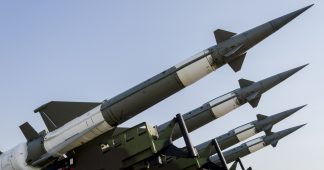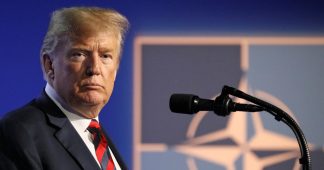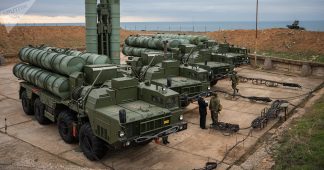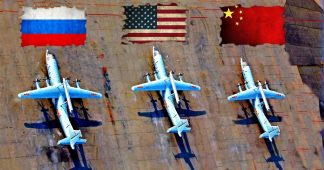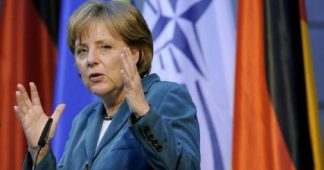Statement of A. Wess Mitchell
Assistant Secretary of State for European and Eurasian Affairs
Senate Foreign Relations Committee
U.S. Strategy Towards the Russian Federation
August 21, 2018
Chairman Corker, Ranking Member Menendez, thank you for inviting me to testify today. I will use my prepared comments to outline in brief form the overarching strategy of the United States towards the Russian Federation. The foundation for this strategy is provided by three documents, as directed and approved by the President: the National Security Strategy, the National Defense Strategy and the Russia Integrated Strategy.
The starting point of the National Security Strategy is the recognition that America has entered a period of big-power competition, and that past U.S. policies have neither sufficiently grasped the scope of this emerging trend nor adequately equipped our nation to succeed in it. Contrary to the hopeful assumptions of previous administrations, Russia and China are serious competitors that are building up the material and ideological wherewithal to contest U.S. primacy and leadership in the 21st Century. It continues to be among the foremost national security interests of the United States to prevent the domination of the Eurasian landmass by hostile powers. The central aim of the administration’s foreign policy is to prepare our nation to confront this challenge by systematically strengthening the military, economic and political fundaments of American power.
Our Russia policy proceeds from the recognition that, to be effective, U.S. diplomacy toward Russia must be backed by “military power that is second to none and fully integrated with our allies and all of our instruments of power.” To this end, the administration has reversed years of cuts to the U.S. defense budget, begun the process of recapitalizing the U.S. nuclear arsenal, requested close to $11 billion to support the European Deterrence Initiative, and, in the past year and a half, worked with NATO Allies to bring about the largest European defense spending increase since the Cold War – a total of more than $40 billion to date. In addition to commitments from over half of the Alliance to meet NATO’s two-percent defense spending requirement by 2024, the United States achieved virtually all of our policy objectives at the NATO Summit, including the establishment of two new NATO Commands (including one here in the United States), the establishment of new counter-hybrid threat response teams, and major, multi-year initiatives to bolster the mobility, readiness, and capability of the Alliance
In tandem, we have worked to degrade Russia’s ability to conduct aggression by imposing costs on the Russian state and the oligarchy that sustains it. Building on Secretary Pompeo’s recent testimony, I am submitting for the record a detailed list of actions this administration has taken. These include, to date: 217 individuals and entities sanctioned, 6 diplomatic and consular facilities closed or kept closed, and 60 spies removed from U.S. soil. The State Department has played the lead role in ensuring that these efforts are closely and effectively coordinated with European allies through synchronized expulsions and the continued roll-over of sanctions related to Russia’s ongoing aggression against Ukraine.
Our actions are having an impact. Research by the State Department’s Office of the Chief Economist shows that on average sanctioned Russian firms see their operating revenue fall by a quarter; their total asset valuation fall by half; and are forced to fire a third of their employees. We believe our sanctions, cumulatively, have cost the Russian government tens of billions of dollars on top of the broader impact on state-owned sectors and the chilling effect of U.S. sanctions on the Russian economy. Following the announcement of sanctions in April, the Russian company Rusal lost about fifty percent of its market value. In the five days following our August 8 announcement of Chemical and Biological Weapons Act sanctions, the ruble depreciated to its lowest level against the dollar in two years.
Even as we have imposed unprecedented penalties for Russian aggression, we have been clear that the door to dialogue is open, should Putin choose to take credible steps toward a constructive path. In Syria, we created de-escalation channels to avoid collisions between our forces. In Ukraine, we have maintained an effort under Ambassador Kurt Volker to provide the means by which Russia can live up to its commitments under the Minsk Agreements. But in all of these areas, it is up to Russia, not America, to take the next step. Our policy remains unchanged: steady cost-imposition until Russia changes course.
As with the overall strategy, the premise of these efforts has been that our diplomacy is most effective when backed by positions of strength. We have placed particular emphasis on bolstering the states of frontline Europe that are most susceptible to Russian geopolitical pressure. In Ukraine and Georgia, we lifted the previous administration’s restrictions on the acquisition of defensive weapons for resisting Russian territorial aggression. In the Balkans, American diplomacy has played a lead role in resolving the Greece-Macedonia name dispute and is engaging with Serbia and Kosovo to propel the EU-led dialogue. In the Caucasus, Black Sea region, and Central Europe we are working to close the vacuums that invite Russian penetration by promoting energy diversification, fighting corruption, and competing for hearts and minds in the lead-up to the 30th anniversary of the end of Communism.
Our strategy is animated by the realization that the threat from Russia has evolved beyond being simply an external or military one; it includes unprecedentedly brazen influence operations orchestrated by the Kremlin on the soil of our allies and even here at home in the United States. These activities are, as FBI Director Wray recently stated, “wide and deep,” being both extensively resourced and directed from the highest levels of the Russian state. We work closely with the Department of Homeland Security, the Department of Justice and, and the National Security Council to ensure that all relevant resources are being brought to bear to thwart and punish any Russian influence campaigns in the run-up to the elections.
It’s important to state clearly what these campaigns are and are not about.
What they’re not about is any particular attachment to specific U.S. domestic political causes. They are not about right or left or American political philosophy. The threat from Russian influence operations existed long before our 2016 presidential election and will continue long after this election cycle, or the next, or the next. As the recent Facebook purges reveal, the Russian state has promoted fringe voices on the political left, not just the right, including groups who advocate violence, the storming of federal buildings and the overthrow of the U.S. government. Russia foments and funds controversial causes – and then foments and funds the causes opposed to those causes. Putin’s thesis is that the American Constitution is an experiment that will fail if challenged in the right way from within. Putin wants to break apart the American Republic, not by influencing an election or two, but by systematically inflaming the perceived fault-lines that exist within our society. His is a strategy of chaos for strategic effect. Accepting this fact is absolutely essential for developing a long-term comprehensive response to the problem. The most dangerous thing we could do is to politicize the challenge, which in itself would be a gift to Putin.
What Russian efforts are about is geopolitics: the Putinist system’s permanent and self-justifying struggle for international dominance. As stated by a handbook of the Russian Armed Forces, the goal is “to carry out mass psychological campaigns against the population of a state in order to destabilize society and the government; as well as forcing a state to make decisions in the interests of their opponents.” Doing so involves a n evolved toolkit of subversive statecraft first employed by the Bolshevik and later the Soviet state, which has been upgraded for the digital age. While these tools and technologies differ depending on the context, the key to their success is that the Kremlin employs them with in a common strategic and operational framework aimed at leveraging all available means to achieve a decisive strategic effect.
The State Department takes this threat very seriously. From my first day on the job, I have established for our team that countering this threat, in both its overt and covert forms, will be among the highest priorities for the Bureau of European and Eurasian Affairs. As a co-chair of the Russia Influence Group, I work with General Scapparotti to bring the combined resources of EUR and EUCOM to bear against this problem. Under EUR’s leadership, all 50 U.S. missions located in Europe and Eurasia are required to develop, coordinate and execute tailored action plans for rebuffing Russian influence operations in their host countries.
Within the Bureau, we recruited one of the architects of the Global Engagement Center legislation from the staff of a member of this committee; in addition, we formed a new position – the Senior Advisor for Russian Malign Activities and Trends (or, SARMAT) – to develop cross-regional strategies across offices. Early this year, EUR created a dedicated team within the Bureau to take the offensive and publicly expose Russian malign activities, which since January of this year has called out the Kremlin on 112 occasions. Together with the GEC, EUR is now working with our close ally the UK to form an international coalition for coordinating efforts in this field. The State Department requested over $380 million in security and economic assistance accounts in the President’s 2019 Budget for Europe and Eurasia that can be allocated toward combatting Russian malign influence.
In these efforts, we recognize that Congress has an important role to play in providing the tools and resources that will be needed to deal effectively with the combined Russian problem set. As Secretary Pompeo made clear in his recent testimony, we are committed to working with all of you to make headway against this problem and align our efforts in support of the President’s Russia strategy.
Mr. Chairman, thank you again for inviting me to speak today. I welcome your questions.
